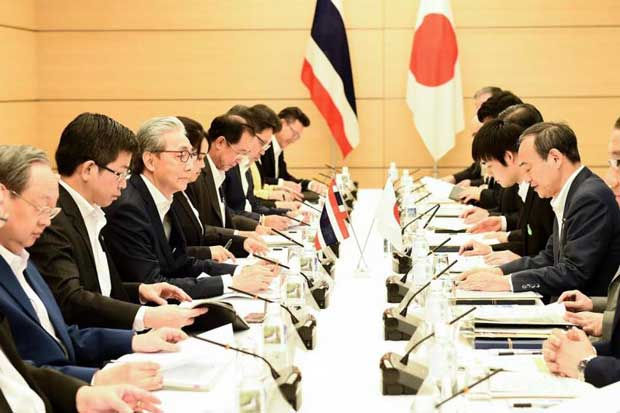Thailand: The CPTPP Treaty
- respublica international

- Oct 2, 2020
- 3 min read
By Theethad Thipsoda (JJ)

In early 2017, the United States of America terminated its membership from the TPP or the
Trans-Pacific Partnership. The remaining 11 countries chose to continue and push forward the
agreement which emphasises on free trade and the lowering of trade barriers under a new
name: CPTPP (Comprehensive and Progressive Agreement of Trans-Pacific Partnership). The
11 current pending member states (excluding the US) have a total population of over half a
billion people, a combined GDP of 11 trillion USD making up 13% of the total global GDP.
Though the CPTPP is seen to boost overall economic growth, it has caused considerable
amounts of criticism and backlash among local Thais. The Prayut Chan-o-cha government has
had efforts in joining the partnership, however, due to backlash from locals and NGOs, it failed
to file its application at the CPTPP Commission meeting on August 5, in Mexico.
Deputy Prime Minister Somkid Jatusiripitak, who leads the government regarding
economy-related issues, has shown a strong desire for Thailand to join the CPTPP citing a 12
per cent increase in GDP which is valued at 13,300 million baht, or roughly 427 million dollars.
The Ministry of Commerce also insists that joining the partnership is crucial for the Thai
economy if it wants to compete at an international level. In addition, the partnership would draw
in potential foreign investors as well. Despite successful COVID prevention efforts, The World
Bank has also predicted that Thailand’s economy would be one of the worst-hit economies in
Asia, the CPTPP could help remedy the situation.
Though Thailand’s membership may seem beneficial to expedite its economy in the long
term, critics say that it will hurt the service and agricultural sector. One of the most controversial
topics regards the patenting of seeds and plant-based materials which could hurt Thailand’s
agriculture-based economy. The joining of this partnership would mean Thailand would have to
follow the Protection of New Varieties of Plants Convention (UPOV1992) which forbids local
farmers to reuse seeds that contain patented materials. If the UPOV were to be implemented
farmers would have to buy seeds at 6-12 times their original price. This would also mean that
the country would have to amend certain laws
The second issue widely debated is about the price and accessibility of medicine. Widely
known as Asia’s growing hub for medical tourism, Thailand is one of the most popular hotspots
for obtaining healthcare services. Low costs, good hospitality, and easy accessibility to
antibiotics are what drives foreigners here. However, joining the CPTPP would mean that Thais
would have to pay more for the same type of medicine and an increased dependency on
foreign-manufactured drugs. Issues like patent linkage and compulsory licensing are also
current topics of debate.
Finally, the CPTPP, just like most free-trade agreements would lower the power of the
Thai government to negotiate at the international level. Many critics also argue that joining the
CPTPP would only benefit the rich and investors at the expense of the working class.
Over the past few months of quarantine, Thai netizens have expressed their anger and
disinterest in joining the CPTPP via online platforms such as Twitter. With hashtags such as
#NOCPTPP trending, the government has taken more time to take these issues further into
consideration. Numerous online petitions have been put into place such as this one via
change.org with over 27000 signatures.
See also: https://respublicaorg.wixsite.com/international/post/crisis-in-thailand
To conclude, Thailand’s position about joining the CPTPP is still uncertain amidst the
ongoing political climate. For now, public awareness and understanding between stakeholders
are crucial towards joining the free-trade agreement. Without public understanding, any effort to
join the Comprehensive and Progressive Agreement of the Trans-Pacific Partnership will most
likely be unsuccessful.



Comments